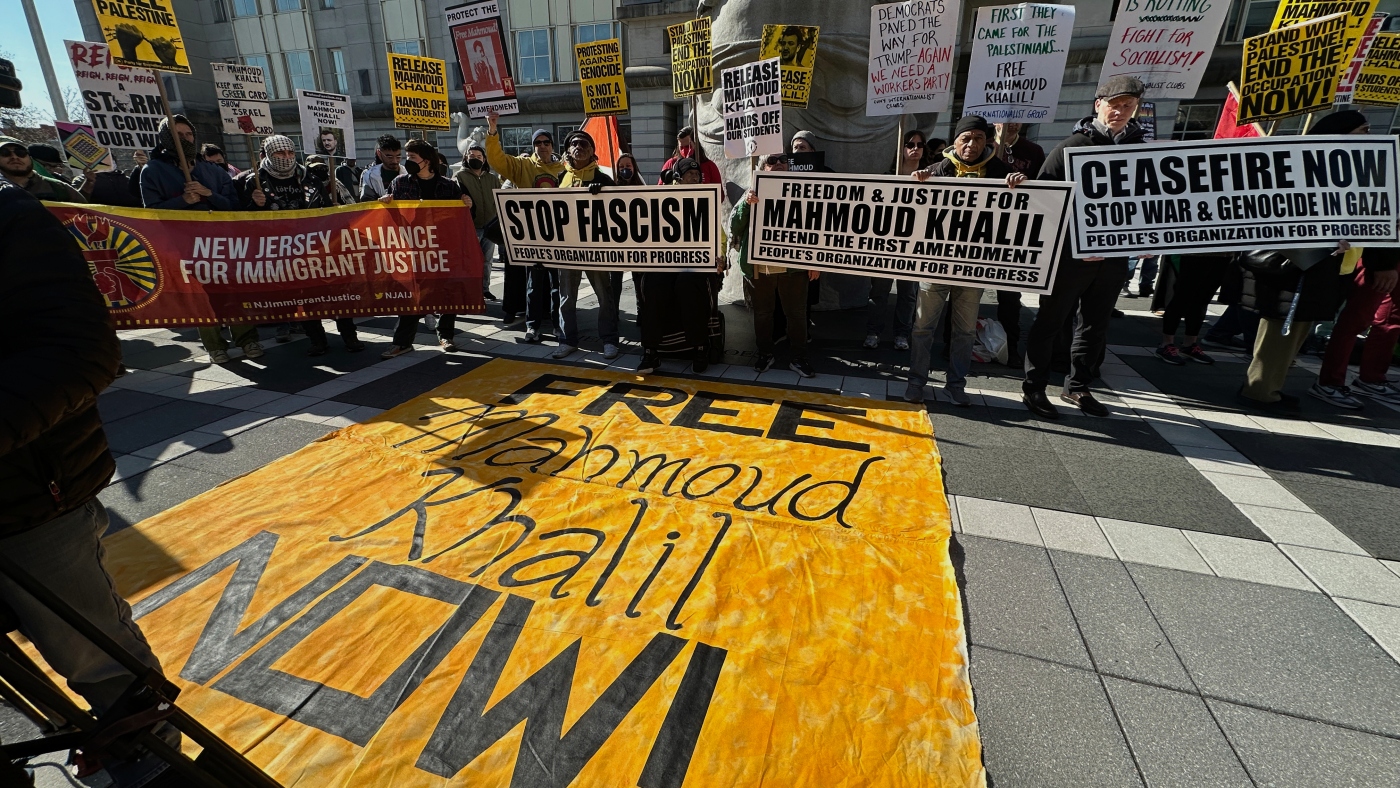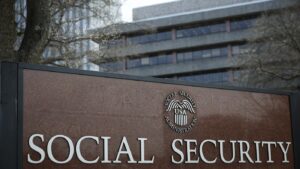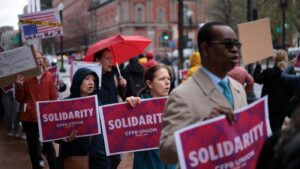Controversy Over Detained Columbia Student Sparks Debate on Immigration and Free Speech
Amidst a backdrop of heightened political tension, the case of Mahmoud Khalil, a Columbia University graduate student, has stirred significant debate regarding immigration policies and free speech rights in the United States. Khalil, a Green Card holder married to a U.S. citizen, faces potential deportation after being detained by U.S. immigration officials in early March. The government claims his actions conflict with American foreign interests.

Pro-Palestinian protesters demanding the release of Columbia University graduate student Mahmoud Khalil stand outside his immigration court hearing in Newark, N.J., on Friday, March 28, 2025. Ted Shaffrey/AP
The Trump Administration, invoking the McCarran-Walter Act of 1952, seeks to justify Khalil’s deportation. This law, also known as the Immigration Nationality Act, was a pivotal tool during the Cold War for shaping U.S. immigration policy. It allows the government to deport individuals whose presence may adversely affect U.S. foreign policy.
Recent accusations against some pro-Palestinian protesters, including claims of antisemitism and terrorism support, have added fuel to the fire. Protesters counter that their criticism of Israel and U.S. policies should not be misinterpreted as antisemitism.
President Trump stated on social media, “We know there are more students at Columbia and other Universities across the country who have engaged in pro-terrorist, anti-Semitic, anti-American activity, and the Trump Administration will not tolerate it. We will find, apprehend, and deport these terrorist sympathizers from our country — never to return again.” More details on his statement can be found here.
Free Speech and Immigration: A Complex Intersection
The situation raises fundamental questions about the limits of free speech for non-citizens in the U.S. Homeland Security Secretary Kristi Noem emphasized that while visas are a privilege, advocating violence and terrorism justifies revocation. “When you advocate for violence and terrorism that privilege should be revoked and you should not be in this country,” Noem posted on X last month.
Historically, the Supreme Court has upheld that the First Amendment applies to noncitizens, yet the federal government retains substantial authority over immigration. The McCarran-Walter Act, passed in 1952, was particularly aimed at communists, reflecting fears of ideological infiltration during the Cold War.
The McCarran-Walter Act and Its Legacy
Legal experts note that the Act not only targeted ideologies but also reinforced racial and ethnic quotas within immigration policy. Professor Michael Kagan of the University of Nevada highlights its discriminatory impact on Jewish immigrants by favoring those from Western and Northern Europe.
Secretary of State Marco Rubio has cited the Act in a memo concerning Khalil’s case, suggesting his activities could harm U.S. foreign policy. Rubio has revoked over 300 visas, stating, “We gave you a visa to come and study and get a degree, not to become a social activist that tears up our university campus.”
As the decision on Khalil’s case looms, free speech advocates express concern over potential parallels to the McCarthy era’s suppression of dissenting voices and its implications for American citizens today.






